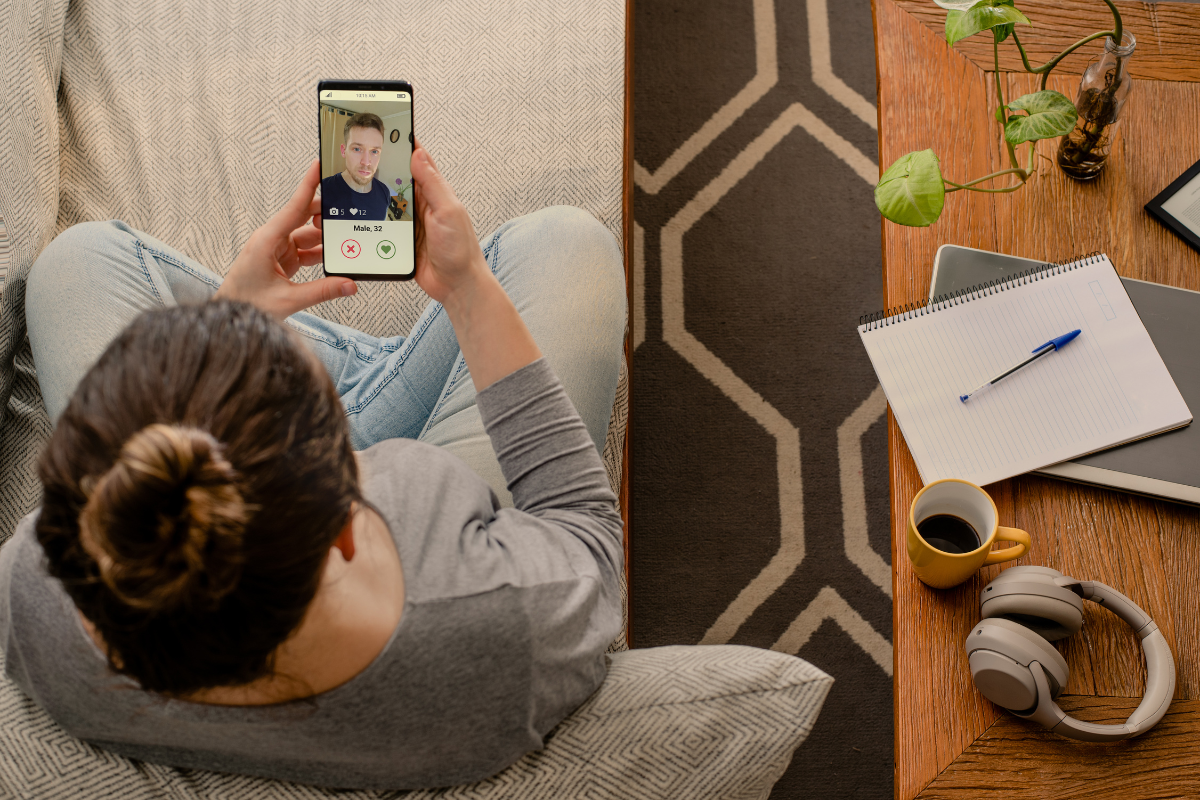*names have been changed for privacy
“I was lucky enough to reconnect with my childhood friend on Tinder. Who would have thought that we were destined to be soulmates?” I couldn’t miss the joy in Noah’s voice as he shared his experience meeting his fiancée on the Tinder dating app. In this technological age, especially post-covid where more and more people are working from home or taking online classes, people have fewer opportunities to meet others. Many of my friends have used dating apps; some support it, while others are against it. I am inclined to think that though luck may play a role in finding a good match, being honest, having effective communication and maybe even patience also play a role in getting the best out of these matches.
The question is, how do you know who is genuine and honest on their profiles?
My friend Noah had been on Tinder for a while, but no one caught his attention until Viv. He swiped right on her profile, and so did she. They were matched up and began a conversation. Soon, they realized they went to the same high school, and knew each other’s families as kids. He was even friends with her older brother, but barely knew her back then. She was always off doing some activity or another and was barely home. Now, they are in a happy relationship, planning their wedding. “What are the odds! How is it that after all this time, fate matched us on Tinder?” he said excitedly, eyes filled with love as he recounted his story about using Tinder.
Not many people are as lucky as Noah and Viv. Some have found dating apps very superficial. There’s a high risk of deception, which has led to disappointment and even danger for some. Another friend of mine, Eva, has been lucky enough to have some good matches on Bumble. Some of these matches turned into conversations and then a date. Unfortunately, she was never attracted to any of the guys she met. “There was no connection … we just didn’t click,’’ she said.
Tim’s experience on dating apps led him to develop trust issues. He met a girl on a dating app, and she looked great. However, she turned out to look nothing like her picture in real life. She walked past him twice before approaching him to say, “Hey! It is me.” He was taken aback, “Sorry, do I know you?’’ he asked. He couldn’t proceed with the date when he realized she looked nothing like her picture. He offered to pay for her drinks and even an Uber to take her home, but he felt betrayed and deceived and swore off dating apps.
While some think dating apps are convenient and provide access to a large pool of potential partners, many feel the opposite. Because of the high amount of people misrepresenting themselves, many people think the chances of a natural connection on dating apps is lower. There’s a lack of shared interests or connection, and it tends to backfire in real life when both parties meet.
I don’t find dating apps ineffective. It’s no different to setting up friends with each other, except that we can vouch for both parties. We can dissuade any fears of dishonesty and tell them everything great and true about the other person. However, a dating app is based on algorithms designed to prioritize factors important in forming a successful relationship. It makes it easy for people to make up feel-good stories about themselves on their profiles, rather than the truth.
Dating apps are designed to provide a platform for people to connect and build relationships based on genuine shared interests, values, and personalities. When people use these apps to deceive and manipulate others, it undermines their purpose and can make the experience less enjoyable. This erodes trust and credibility in the dating app community. People may become more cautious and skeptical of others, making building genuine connections and forming relationships harder.
99.9 per cent of the time, honesty is crucial to turn a match into something more. Profiles should be transparent; apps could introduce features to encourage meaningful conversation so people genuinely want to share their interests and hobbies.However, there is only so much the app itself can do–it ultimately comes down to the users to be genuine and honest to ensure everyone has a better experience.






